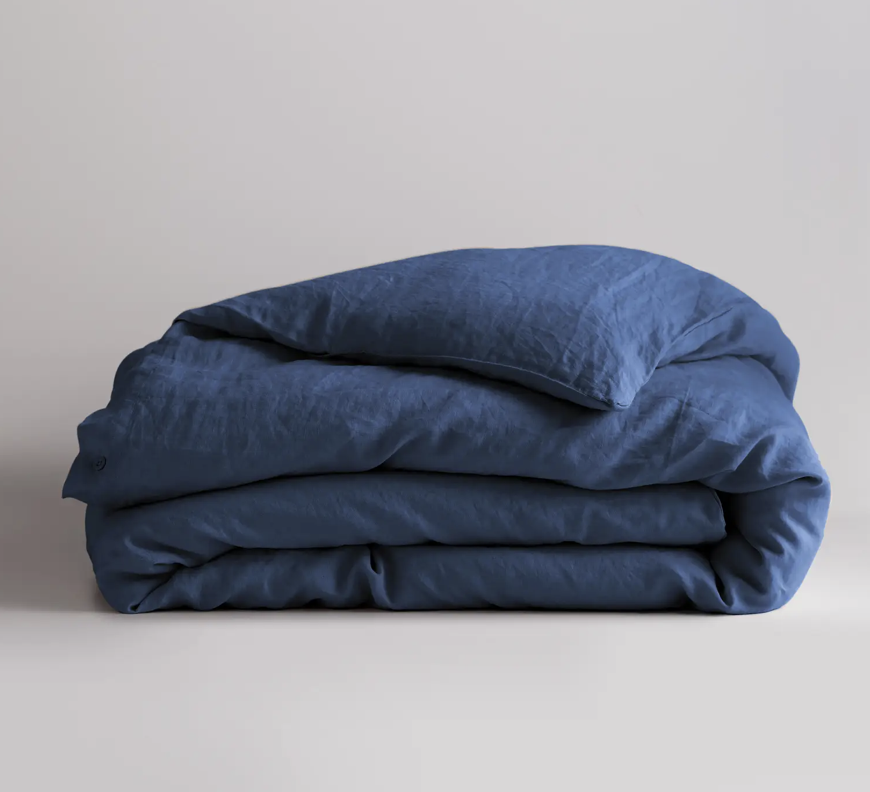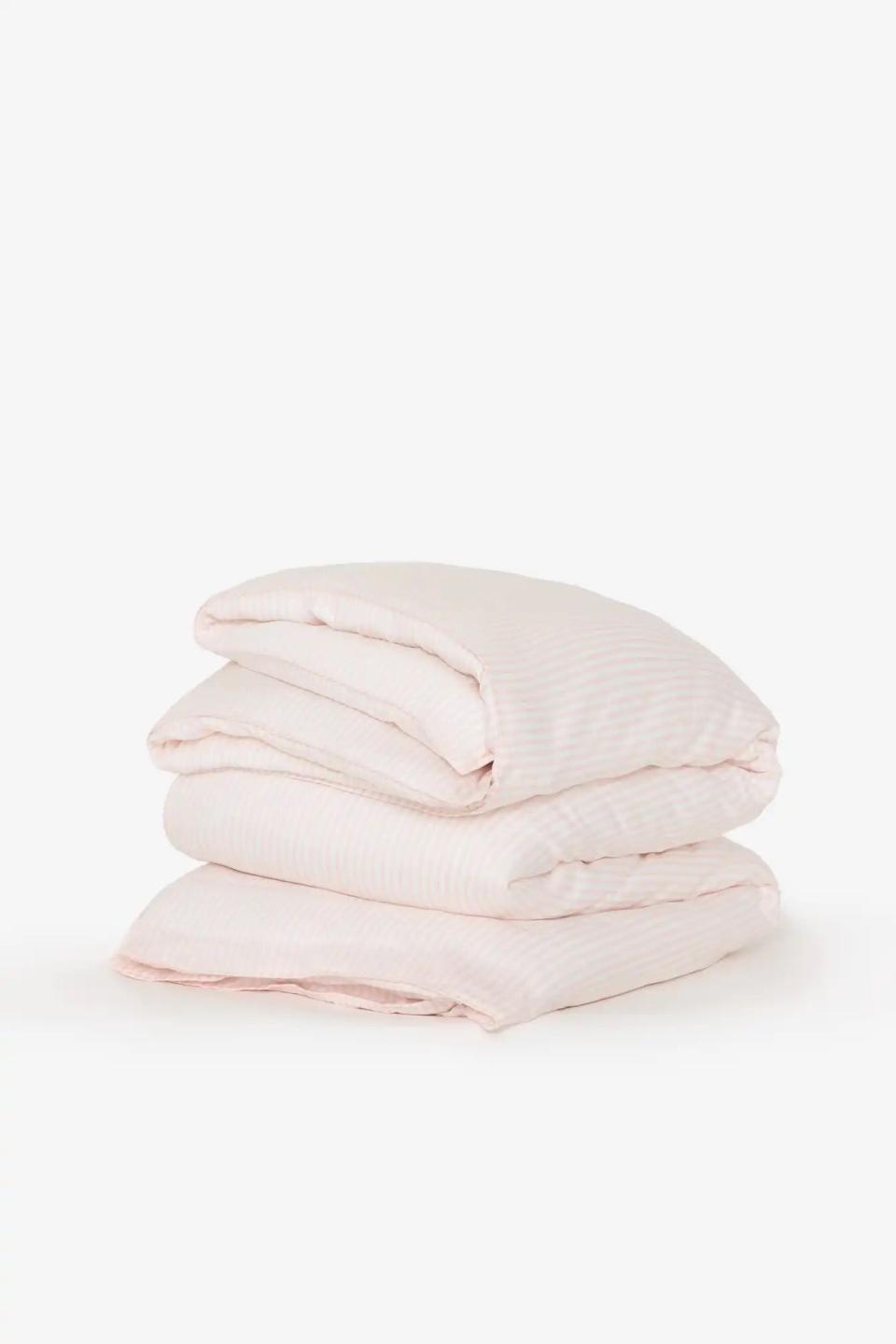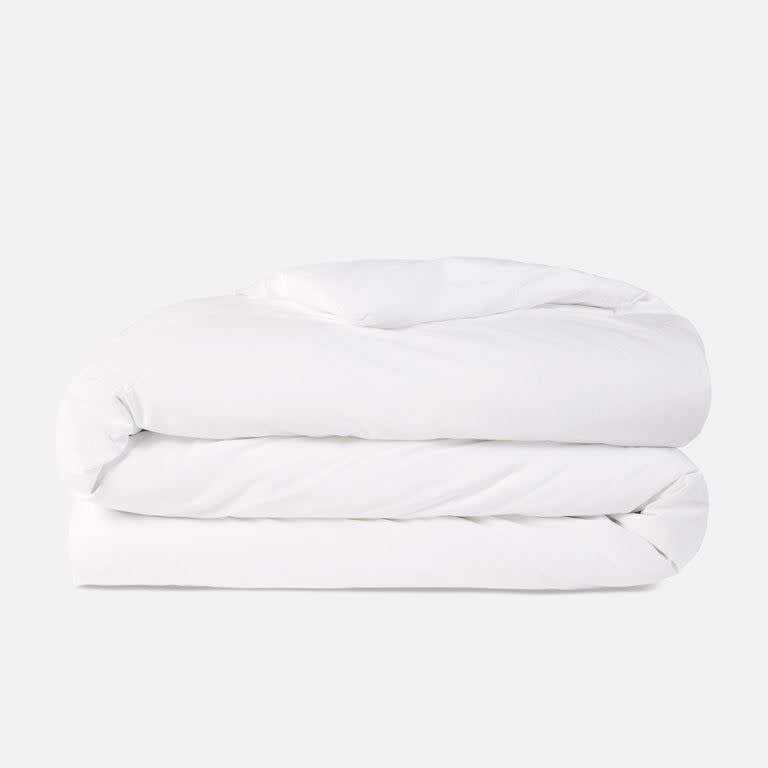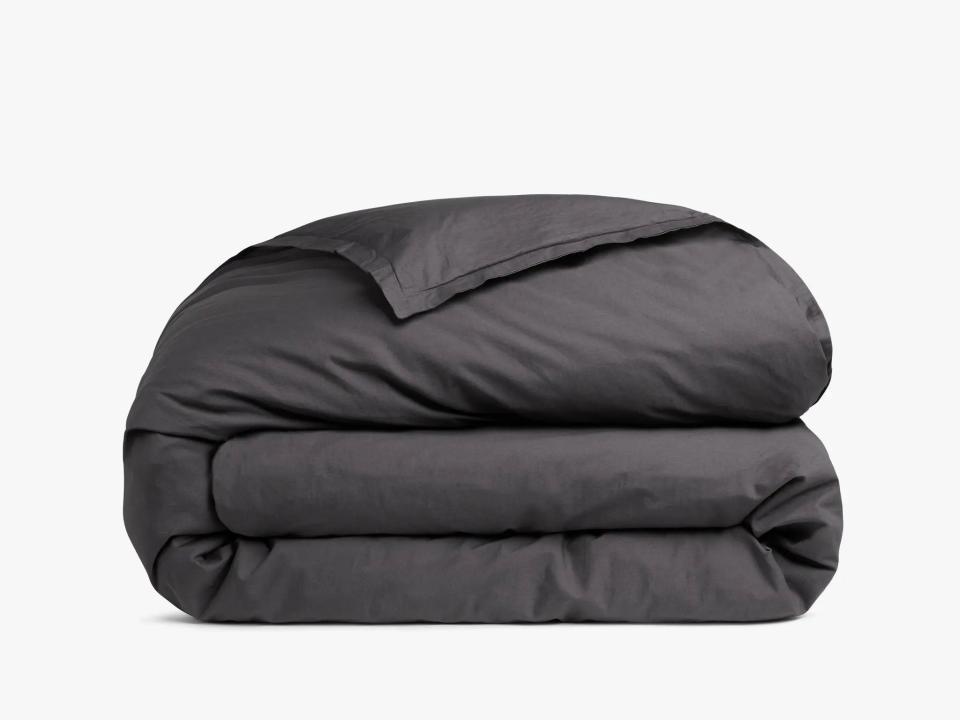Experts Warn Why You Should Never Sleep Without a Duvet Cover

"Hearst Magazines and Yahoo may earn commission or revenue on some items through these links."
There are few things more glorious than getting into bed with a big, fluffy comforter. But if you are using one without putting it in a duvet cover first, your bedding will start to feel less-than-fresh very soon—and negative impacts to your skin and health may arise shortly after.
“Bedding buildup can happen quickly for many reasons like body odor, sweat, dirt, debris, dust, oil residue, dead skin cells, and bacteria,” says Dr. Anna Chacon, MD, FAAD, and board-certified dermatologist in Miami, Florida. “The majority of these can trigger skin issues and allergies without proper hygiene care and bed washing.”
Other gross things can also build up in a dirty duvet cover that might start making you feel sick.
“Additionally, particles like pollen, pet dander, and even mold can accumulate on bedding, potentially triggering allergies or skin irritations,” adds Dr. Kristina Collins, MD, FAAD, a board-certified dermatologist specializing in Mohs micrographic surgery, as well as surgical and cosmetic dermatology.
This is why it’s essential to shower or at least wash your face before getting into bed each night.
“If you skip showering before bed, dirt, pollen, and other particles can also settle into your bedding,” Dr. Alain Michon, MD, MSc, PG, dermatologist and medical director at Project Skin MD Ottawa. “Over time, this buildup can irritate your skin.”
To keep your comforter clean, it’s essential to use a duvet cover–which not only protects your comforter from contaminants but also makes washing easier and more frequent.
Gross Reasons You Need a Duvet Cover
Here are six reasons you should be using a duvet cover, according to dermatologists.
Acne Breakouts
Using a comforter that isn’t frequently washed can lead to acne on your back, chest, or face if the skin is in close contact with a dirty comforter.
“The natural oils, sweat, and dead skin cells can transfer on your bedding, which after a certain amount of time can lead to breakouts,” says Dr. Chacon. “It’s important to wash your face prior to getting into bed.”
Skin Irritations
Bacteria, fungi, and sweat trapped in bedding can lead to different types of skin irritation.
“Conditions like eczema, hives, or contact dermatitis can flare up when the skin comes into contact with allergens or irritants in dirty bedding,” says Dr. Collins.
Allergies and Asthma
Things like dust, pet dander, pollen, and dust mites can add up, causing allergies before or after you head to bed.
“These allergens can trigger allergic reactions, such as sneezing, itchy eyes, and eczema flare-ups,” says Dr. Collins. “In some cases, dust mites can exacerbate asthma symptoms.”
Adds Dr. Michon, “If pets sleep on your bed, their fur, dander, and even traces of saliva can accumulate on the duvet cover, potentially triggering allergies or skin irritation.”
Fungal Infections
Build-up can stick to your comforter causing a list of infections, especially fungal infections.
“Fungi, such as mold or yeast thrive in warm, moist environments like bedding,” says Dr. Collins. “Sleeping on a dirty comforter can increase the risk of fungal infections like athlete's foot or yeast infections, especially if the bedding is damp from sweat.”
Spills or Food Crumbs
Let’s be honest, most of us munch and drink in bed. But even the smallest spill or stray crumb becomes a feast for the microorganisms in already dirty bedding.
“Spills from food, drinks, or other messes can seep into bedding, making it a perfect spot for bacteria and fungus to grow,” says Dr. Michon.
Viruses
It’s true: Viruses (like those that cause colds and flu) can linger in your bedding for hours or days and make you sick as a result.
“Germs and viruses, including cold and flu, can linger on dirty bedding—especially if you’ve been sick recently,” says Dr. Collins. “Sleeping on a contaminated comforter can increase the risk of reintroducing these germs to your body, prolonging illness or re-infecting yourself.”
How to Care for Your Duvet Cover
The best and easiest way to keep your comforter (and the rest of your bed) clean is to use a removable duvet cover and wash it regularly.
“A duvet cover should be washed at least once every one to two weeks to reduce the buildup of sweat, oils, dust, and allergens,” says Dr. Collins. “Wash it in warm water (ideally 130 degrees Fahrenheit) to kill bacteria and dust mites. Use a gentle detergent to avoid irritating the skin.”
She adds that you also need to make sure to thoroughly dry the duvet cover, as moisture can promote mold and mildew growth. You should also replace your duvet cover and other bedding after regular use.
“Duvet covers can typically be replaced every one to two, depending on wear and tear. Comforters should be replaced every five to ten years, as they can lose their ability to keep you warm and may accumulate allergens over time,” shares Dr. Collins.
However, this can depend on the quality of your bedding.
“Lower thread counts don’t last as long and would need to be replaced sooner,” adds Dr. Chacon.
Finally, don’t forget about replacing your pillows, which can also contribute to health and skin issues.
“Pillows should be replaced every one to two years because they can accumulate dust mites, dead skin, and bacteria. Regularly washing pillows and using pillow protectors can help extend their lifespan,” adds Dr. Collins.
Additionally, using allergen-proof bedding (e.g., dust mite-proof pillow and mattress protectors) can help further reduce exposure to allergens. Regularly washing bedding and keeping it clean can have a significant impact on both your skin and overall health.
European Linen Duvet Cover
Breeze Duvet Cover
Organic Cotton Duvet Cover
Percale Duvet Cover
Follow House Beautiful on Instagram and TikTok.
You Might Also Like





